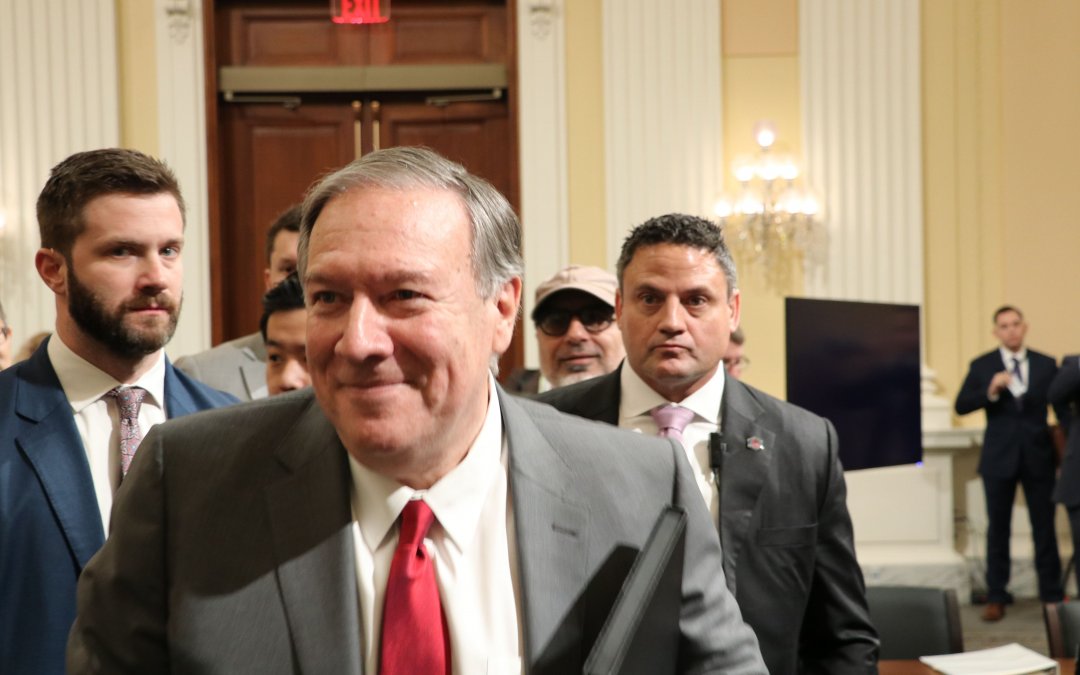WASHINGTON – Former Secretary of State Mike Pompeo and former Secretary of Defense Leon Panetta warned lawmakers on Tuesday that China is increasingly collaborating with nations hostile to the United States and urged lawmakers to provide more support to help Taiwan combat Chinese aggression.
“I have been critical of many of President Biden’s foreign policy actions, but I must say the work that they continue to do to confront the challenge in China, I have approved and appreciated,” Pompeo said at a hearing organized by the House Select Committee on the Chinese Communist Party.
China has undertaken one of the largest peacetime military expansions since World War II, according to committee Chair Mike Gallagher (R-Wis.). China’s increasing fondness of Russia, Iran and North Korea has heightened tensions on the international stage, acknowledged Gallagher.
Pompeo, a longtime China hawk who led the State Department in the Trump administration, also warned that such nations are acting in concert with China to the detriment of U.S. interests.
“China, Russia, Iran, North Korea and Venezuela represent a new axis of evil regimes that is pushing a dangerous model for the world,” Pompeo said in his written testimony.
To keep China in check, Panetta encouraged members of Congress to support Biden’s $106 billion national security supplemental package, which would provide aid to Ukraine, Israel and Taiwan to combat increasing aggression in these regions.
“To fail would send a terrible message of weakness to adversaries and allies alike,” said Panetta, who first served as CIA director and later Defense secretary under President Barack Obama. “You cannot be weak on Ukraine and tough on China.”
Pompeo testified that China and Russia have increased their military strength and aggression, leading the U.S. to lose its ability to deter foreign adversaries in many regions, including Europe and the Indo-Pacific. He also noted that Chinese President Xi Jinping has declared his intentions to absorb Taiwan, which he said is a serious security threat. He said he was dismayed that the U.S. did not do enough to prevent Russian President Vladimir Putin from invading Ukraine two years ago.
“I’m glad that Europeans stood up, but we should remember that we did not conduct American foreign policy with the diplomatic excellence and the military power to actually convince Putin not to invade Ukraine,” Pompeo said. “If we simply play defense economically, defense diplomatically, we allow a spy balloon to travel over our country for five days,” he said, referring to a much-watched saga last year where a balloon was tracked flying from Montana to South Carolina before being shot down.
Lawmakers agreed about the dangers of China’s aid for foreign enemies. Rep. Neal Dunn (R-Fla.) described China, Russia, Iran and North Korea as a “global alliance against democracy.”
Panetta added that lawmakers should split Biden’s request for supplemental funding into independent aid packages if they are unable to pass the full amount.
Lawmakers expressed bipartisan support for combating China’s collaboration with nations at odds with U.S., with Gallagher calling the committee “an oasis of bipartisanship.”
Rep. Shontel Brown (D-Ohio) agreed with Panetta, asserting that the U.S. must step up to protect democracies like Taiwan, South Korea and Japan.
“Congress needs to do more to provide the resources that are requested in [Biden’s] national security emergency supplemental,” Brown said. “Without these essential resources, our allies will be left in the cold.”
Panetta also urged lawmakers to invest in training Taiwanese soldiers and providing military aid in order to prepare Taiwan to defend itself in the case of a Chinese invasion or blockade. He stated that “strength” is the only way to deal with China, a sentiment that resonated with Republicans and Democrats at the hearing.
Pompeo also warned in his testimony that China was at “economic war with the United States for decades; we pretended it wasn’t so.” He said the United States needed to win such a war and urged stronger policies to keep China’s economic ambitions in check.


